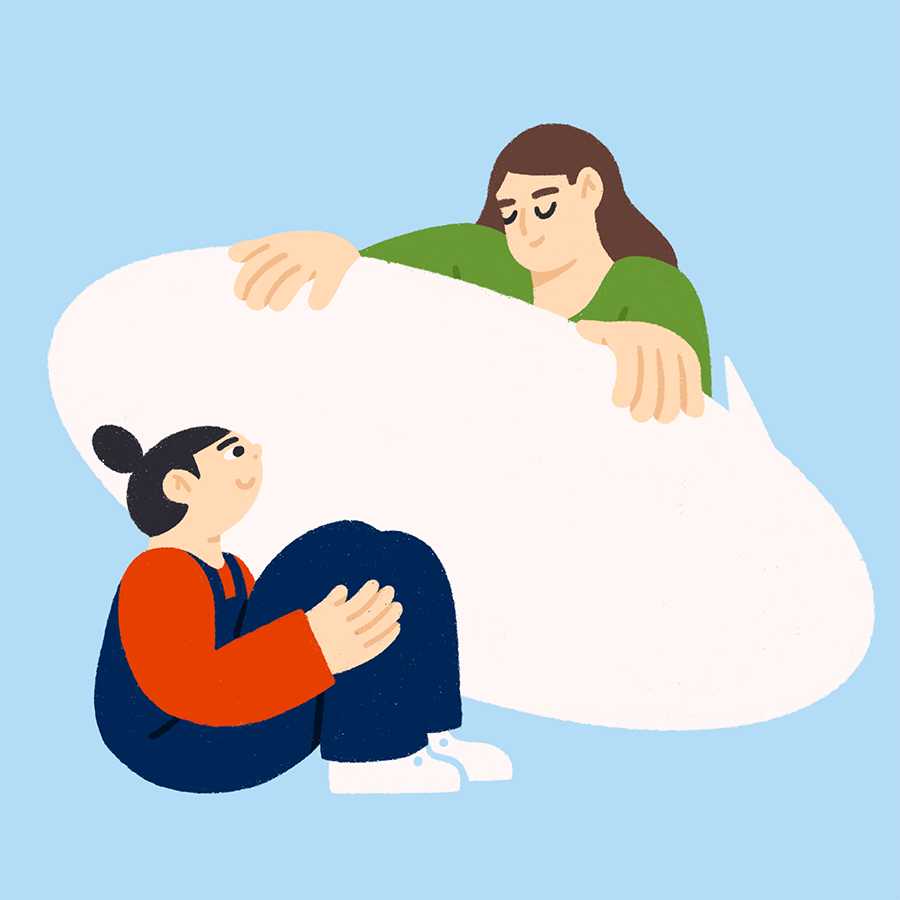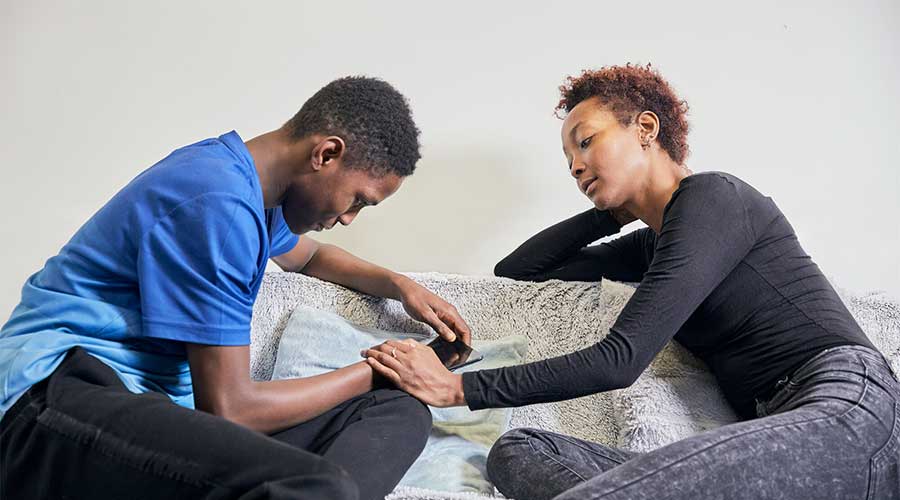On this page
- What does loneliness mean?
- What should I do if I think my child feels lonely?
- My child has said they feel lonely. What should I do?
- Why does my child feel lonely?
- What can I do to help my child feel less lonely?
- How often should I check in with my child?
- What if things seem to be getting worse, not better?
What does loneliness mean?
Loneliness is defined by The Campaign to End Loneliness as:
‘a subjective, unwelcome feeling of lack or loss of companionship. It happens when there is a mismatch between the quantity and quality of the social relationships that we have, and those that we want’.
While loneliness can be caused by being physically alone, being alone doesn’t necessarily lead to feeling lonely.
Sometimes children can feel lonely even if they’re often with other people. They might be feeling this way if they don’t feel properly seen or understood.
Loneliness can look and feel different for everyone, but if you’re worried about your child, it’s good to talk to them about what they might be feeling and experiencing.
What should I do if I think my child feels lonely?

If you think your child is feeling lonely, it’s best to try and talk to them about it first.
Ask them how they’re feeling and try to understand them. If you’re not sure where to start, we have lots of advice on having difficult conversations with children.
You might start by checking what loneliness means to your child. Do they recognise or relate to the feeling? Do they know it’s OK to feel that way sometimes? Do they know they can always talk to you about it if they're feeling this way?
If your child says they are struggling with loneliness, you could work together to create an action plan to help them with these feelings.
My child has said they feel lonely. What should I do?
If your child tells you they feel lonely, it’s important to listen carefully to them. You could repeat back what they’ve said to you, to check you’ve understood them.
Reassure them that loneliness can be a temporary feeling, and that you’re here to support them. Let them know that anybody can feel lonely at times, and you can work together to help them find ways to feel less lonely.
You could help them practice social interactions through role play or encourage them to join groups or clubs that they’re interested in or excited about.
You could share Childline's page on loneliness with them if they want advice or to learn more about the support that's available.
Why does my child feel lonely?
There are lots of reasons a child might feel lonely. Thinking about the reasons why your child might be struggling with these feelings could help you understand the best support you can give them.
Some common reasons for loneliness include:
- Feeling like they need more friends or to feel closer to the friends they have.
- Not having as many chances to socialise and see friends as they’d like.
- Wanting a closer relationship with family or their community.
- Problems with self-esteem, meaning they might not feel confident about making and keeping friends.
- Struggling with a physical or mental health problem.
- Life changes, such as moving house, changing schools or parents or carers separating, meaning it's more difficult to see their usual support network.
What can I do to help my child feel less lonely?

You could try making an action plan with them. This could look like:
Communicating openly
Try to talk and listen to your child regularly and without judgement, acknowledging and validating their feelings as much as possible.
Understanding the cause
Work together to figure out why your child is feeling lonely.
Encouraging socialising
You could help your child practice social interactions through role playing. And you might see if there are any clubs or groups your child might be interested in joining.
Building their confidence
When you notice your child is making progress or putting in effort, it’s important to acknowledge this and praise them, even if the steps they’re taking are small.
Creating a supportive environment
Spending regular, quality time with your child will help them feel supported by you. You can also encourage them to express themselves and their feelings in a way that’s safe and that they enjoy.
How often should I check in with my child?
Loneliness isn’t something that will feel resolved in one conversation, or by doing your action plan just once.
By having regular chats and check-ins with your child, they’ll have more chances to talk to you about how they’re feeling and if their loneliness is feeling better or worse.
You might agree on a regular time to sit down and talk, free from distractions, where your child knows they can talk openly about loneliness or anything else on their mind. Make sure they know they can come to you anytime they need to talk.
What if things seem to be getting worse, not better?
If you’re worried that your child’s loneliness is getting worse, it’s important to speak to teachers, community leaders, or others who know your child well. They could give a different perspective or other suggestions to help.
You can also reach out to healthcare professionals for more support, which could be in-person or online. And our befriending service, Building Connections, is also here to help children and young people struggling with loneliness.
If you think your child might also be experiencing anxiety or depression, we got lots of advice which may be able to help. And they can also contact Childline for support.
In 2023/24, Childline delivered 4,873 counselling sessions to children and young people where loneliness was mentioned. It was at number 5 in the list of top sub-concerns within mental and emotional health.
More parenting advice for you
Illustration credits
Illustrations on this page are by Janice Chang.
Parenting advice row: see individual pages for details.





